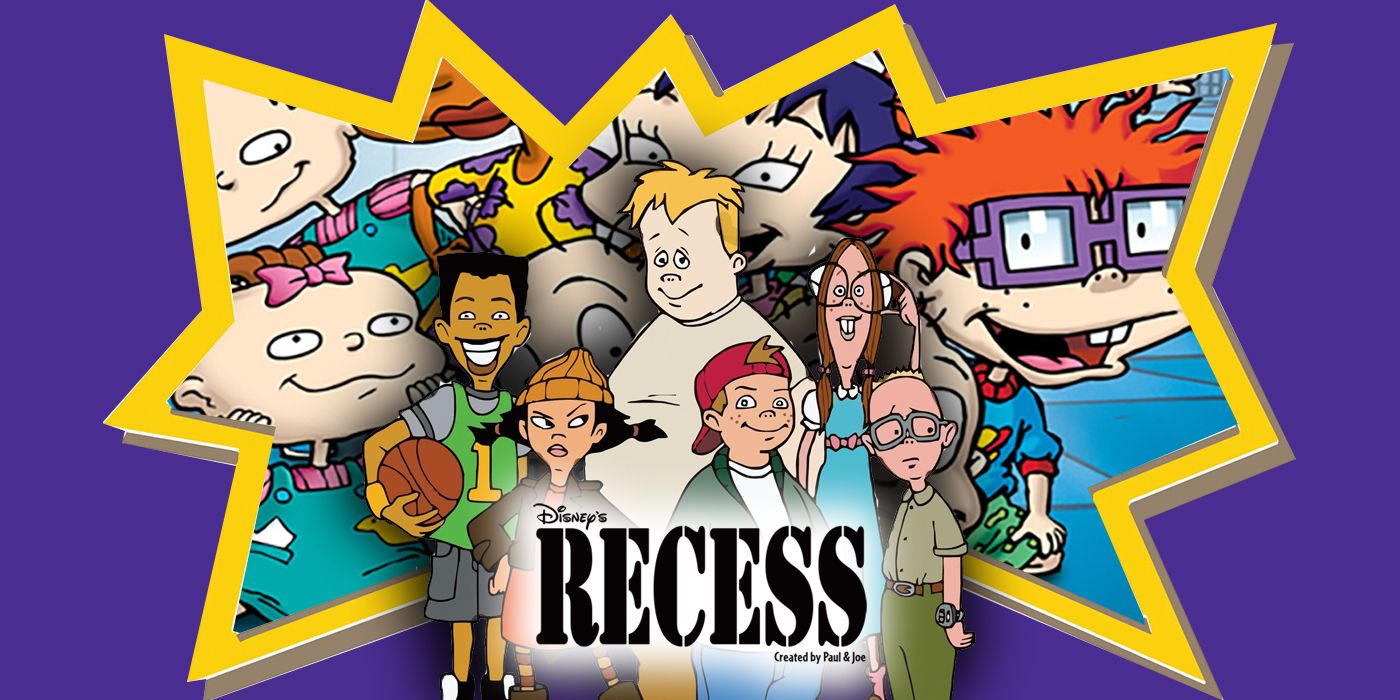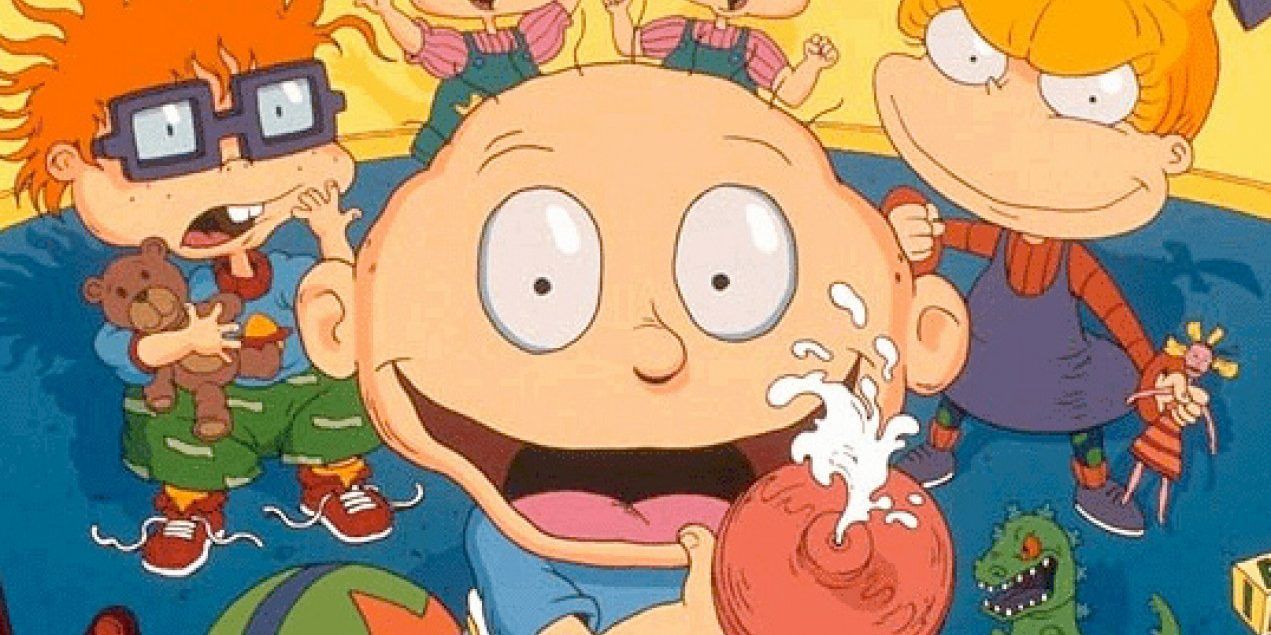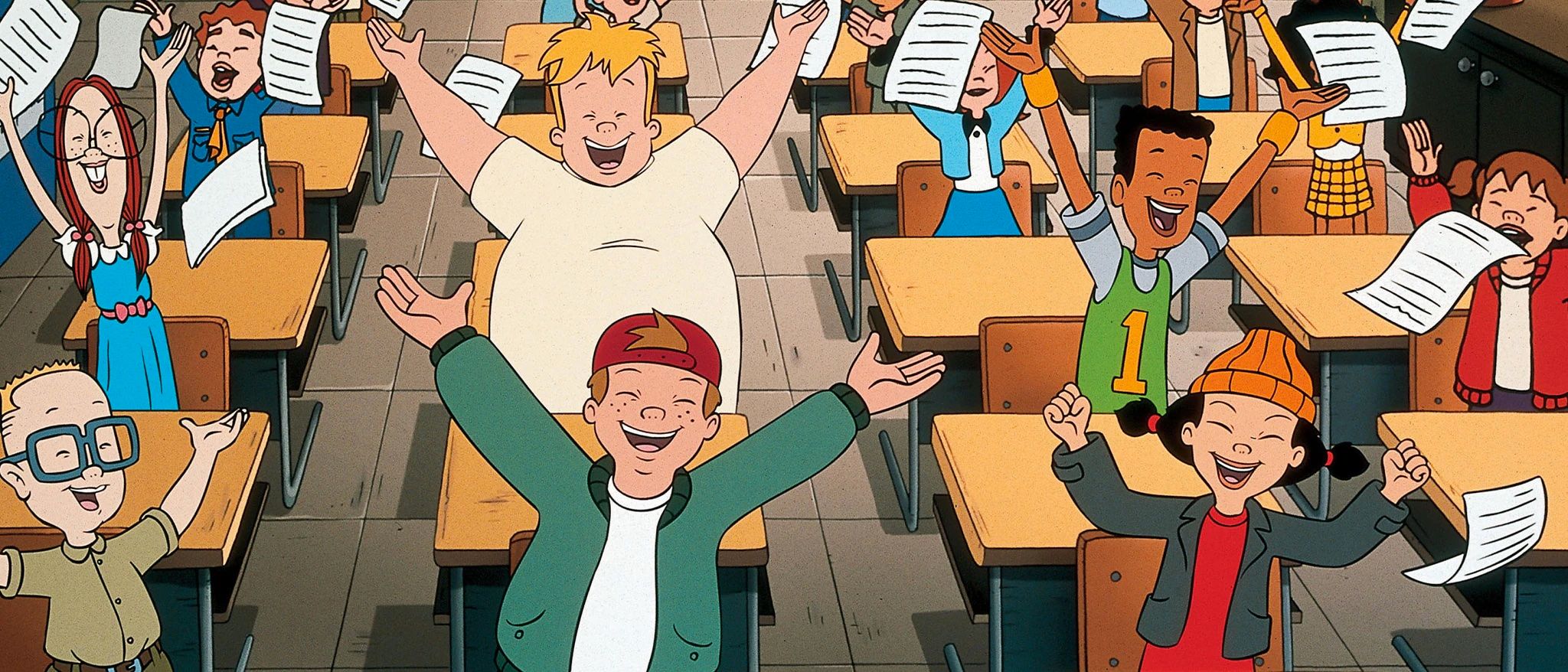Celebrating its 30th anniversary this year, Nickelodeon’s eternally young Rugrats remains one of the network’s most beloved original Nicktoons and one of the most popular American cartoons of all time. Before there was even such a thing as SpongeBob SquarePants, the diaper-clad adventures of Tommy, Chuckie, Angelica, Phil and Lil became a multimedia/merchandise juggernaut that delighted audiences of all ages with its clever depictions of the world from a baby's perspective.
Along with the babies’ 30th birthday, 2021 has brought a fully computer-generated Rugrats reboot to Paramount+ as part of Nickelodeon’s recent efforts to capitalize on its most popular franchises. This is far from the series’ first-ever revival, as 2003’s All Grown Up doubled as a continuation of the original series and an updated take on the popular characters. Now aged-up to preteens, All Grown Up traded in the babies’ strollers and playpens for shopping malls and junior high in a more grounded adolescent sitcom, akin to other Nick shows of the time like iCarly and Drake and Josh.
Although the time-skipping spin-off stayed true to its beloved characters, All Grown Up failed to capture the original series’ sense of humor and charm. Critics have cited that aging up the cast robbed the show of its original premise of the babies’ innocent naivety leading to comedic misunderstandings of the world beyond their backyard. The series was also notably more down-to-earth than its predecessor. Where the original series had episodes that embellished the babies’ fantastical imaginations or followed them as they got separated from their absent-minded parents, All Grown Up dealt more with familiar coming-of-age scenarios like burgeoning relationships, first jobs, and family disputes.
What held All Grown Up back from being a faithful successor wasn’t solely the aged-up cast or the scenarios they faced, but how it veered away from the original series’ execution and the kinds of stories it told. Most episodes of the original series revolved around Tommy and friends learning about a mundane aspect of suburban life, misinterpreting it from their infantile perspective and going on an adventure to explore it. All Grown Up was more about, well, growing up. If Rugrats built each episode around imaginatively reinterpreting the experience of growing up from the perspective of kids, then the series’ true spiritual successor is not All Grown Up or even the 2021 CG reboot. It’s Disney’s Recess.
Created by Rugrats co-creator Paul Germain and former Rugrats head story editor Joe Ansolabehere, Recess follows a group of spirited elementary school friends (T.J., Gus, Mikey, Spinelli, Vince, and Gretchen) as they navigate their way through the intense socioeconomic inner workings of kid society that take place every day on 3rd Street School’s playground. The conceit of the series was to show a comedic grade school emulation of prison movies/shows like The Great Escape or Hogan’s Heroes, portraying the world of the schoolyard like that of a prison yard.
After their tenure on the formative early seasons of Rugrats, German and Ansolabehere developed Recess with the same embellishment of childhood life that made Rugrats memorable. Experiences and events that are familiar staples of elementary school are depicted with the stakes of stories of survival, oppression and literal class warfare. Grade classes and cliques are treated like stringent social casts, the teachers are likened to prison wardens and time out is seen as a form of solitary confinement. The episode in which Gus tries to stay clean for picture day turns the playground into a mud-laden battlefield.
Recess traded the young naivety of Rugrats’ baby life with the exaggerated melodrama of 3rd Street School’s playground life. While the Rugrats babies were limited in every episode by their own inexperience with the world around them, the kids of Recess were adherent to the dramas of the prison-like social system that they found themselves in every day at school. Each episode revolved around them having to navigate around or negotiate with the societal norms of the playground and the school in general. Any trials the 3rd Street gang were faced with they approached with a grizzled world-weariness that treated something as simple as a rained-out week deprived of outdoor recess with a comedic overly thematic heft akin to a war drama. The babies of Rugrats had to deal with the world according to the grown-ups. The Recess gang had to live in a world according to fellow kids, much like in real grade school.
Both Rugrats and Recess treated growing up as an adventure. While each show satirized the high stakes that kids feel when dealing with the trials of growing up, Recess served as a natural progression of how Rugrats explored the lives of children. The kids of Recess were active in their own stories and participated more in the reality of what they were experiencing, allowing them to internalize, grow and learn in each episode. Compared to All Grown Up, Recess better understood that in maturing the spirit of Rugrats, it is not just about showing the innocence of the characters’ coming-of-age, but also exploring their unique perspective of the world that comes with their youth.
Recess is streaming now on Disney+.



